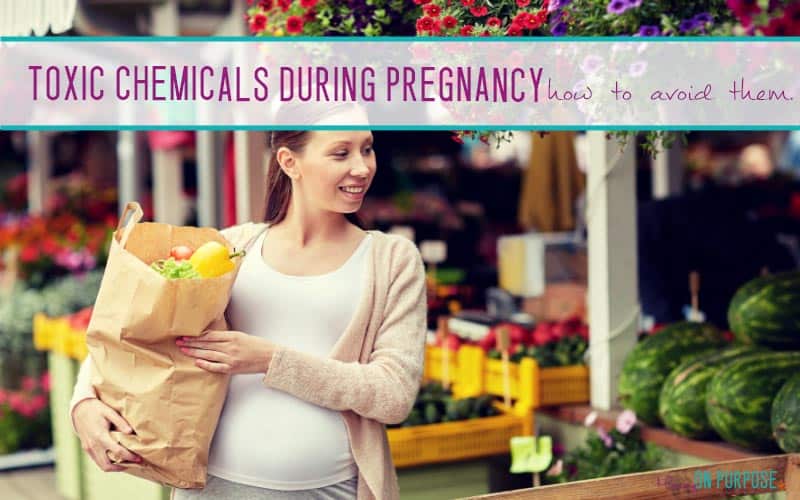We constantly come into contact with chemicals, perfumes, household chemicals, cosmetics, and hygiene products throughout our lives.
We use various products in everyday life, and don’t even question ourselves as to whether they are harmful or not.
However, working with chemicals while pregnant is not the same when you’re not pregnant since chemical exposure during pregnancy can affect your fetus or your own health.
In fact, there are food ingredients, soaps, skin care ingredients, cleaning agents you should avoid during pregnancy, especially in your first trimester.
Why should Pregnant women reduce exposure to chemicals?
During pregnancy, the woman’s immune system changes. And even if a woman has never had an allergy, she may develop an allergic reaction when coming into contact with household chemicals.
And as taking antihistamines during pregnancy is not recommended, just like when suffering from allergies, it’s advisable to minimize contact with chemicals.
It’s also advisable not to smell cleaning products, pesticides, and other products with pugent smell during pregnancy
List of Chemicals to avoid during Pregnancy
Like I’ve said, it’s not safe to work around chemicals while pregnant. And the following are chemicals you should avoid while pregnant.
Chlorine and chlorine-containing substances
Chlorine can affect your skin and hair, and can also cause an allergic reaction such as irritation and swelling of your respiratory tract mucous membranes.
Cleaning chemicals are likely to contain chlorine, therefore cleaning jobs are not safe for pregnant women.
Washing clothes by hand, cleaning the bathrooms and toilet are some of the household activities to avoid during errly pregnancy to avoid miscarriage and other complications.
Smelling bleach while pregnant can also cause irritation, hence, the exposure to it should be reduced
Phosphates
In many countries, the use of phosphates in household chemicals is prohibited, they pose a risk to the pregnancy.
high dose of phosphates can cause osteoporosis,and inhaling it can affect the internal system of the pregnant woman.
Triclosan
Triclosan destroys almost all microbes, including the good ones, comprising the body’s natural microflora, therefore getting in contact with triclosan or inhaling it can be harmful to pregnant women.
Toluene and xylene
Toluene and xylene may provoke the onset of neurological abnormalities in the newborn and developmental abnormalities of the fetus.
Perfumes and enzymes
Perfumes and enzymes can cause allergic reactions, conjunctivitis, rhinitis and bronchitis, asthma attacks, and other conditions.
Although many companies may only mention a group of substances instead of separate components, therefore, you should be cautious.
A single accidental contact with these products isn’t dangerous for the baby, it can only irritate the woman’s respiratory tract. But regular exposure can negatively affect the baby.
Harmful products and chemical for pregnant women
Besides the above-mentioned chemicals, there are other chemicals and products that pregnant women should be careful handling them.
Nail polish, paint, pesticides, herbicides, fungicides, lead-based products, insect and rodent repellants, alcohol, mercury, caffeine and others.
If you accidentally inhale them,it may not cause miscarriage but can affect the respiratory system of your baby that’s under development.
How Pregnant women should avoid harmful chemicals
To avoid complications, you should put on rubber gloves on your hands when handling these chemicals or products containing harmful chemicals so that the chemicals dont make contact with your skin on your hands.
You should thoroughly ventilate your room so you can take in fresh air all the time.
Avoid using detergent or other cleaning products with a strong smell without protective equipment like hand gloves, respirators or nose mask.
Instead of aerosol sprays, use solid thick substances that aren’t easily inhaled.
Never mix cleaning products with ammonia and chlorine together.
Ask a partner or relatives to do the cleaning for you, if possible.
